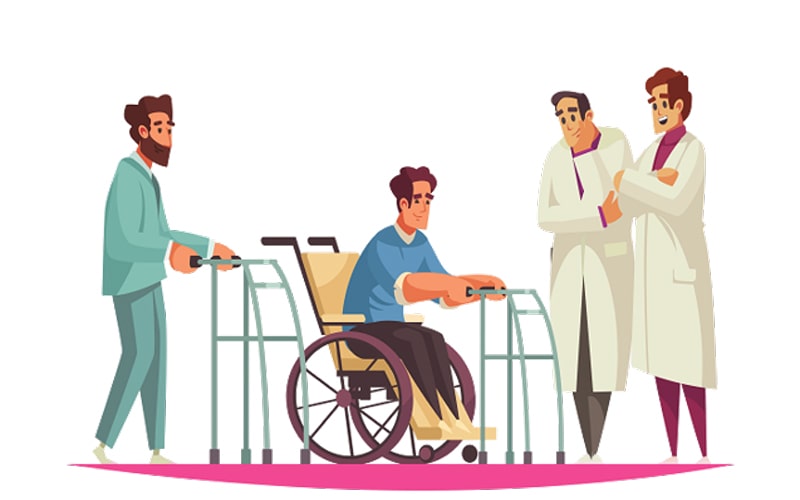
admin
February 23, 2023
Physiotherapy, Its Types & The Role Of A Physiotherapist
Physiotherapy, Its Types & The Role Of A Physiotherapist
Physiotherapy, also known as physical therapy, is a healthcare profession that focuses on the assessment, diagnosis, treatment, and prevention of physical impairments, disabilities, and pain. Doctors at the Physiotherapy centre in Gurgaon and everywhere else work with individuals of all ages and abilities to help them achieve optimal physical function and mobility.
Physiotherapy interventions can include a range of techniques and approaches, including exercise prescription, manual therapy, electrotherapy, and education. Physiotherapists are healthcare professionals who specialize in assessing, diagnosing, treating, and preventing physical impairments, disabilities, and pain.

Physiotherapists may work with individuals who have a wide range of conditions, such as sports injuries, chronic pain, musculoskeletal disorders, neurological conditions, and respiratory conditions.
The goals of physiotherapy include improving physical function and mobility, reducing pain and discomfort, preventing further injury or disability, and promoting overall health and well-being. Physiotherapists work with individuals to create personalized treatment plans that are tailored to their specific needs and goals. This may involve working on specific areas of the body, such as the back, neck, or joints, or addressing broader issues such as balance, coordination, and strength.
Physiotherapy is typically conducted in a clinical setting, but you can also get Physiotherapy at home in Gurgaon. Since physiotherapists can work independently apart from working with a larger healthcare team, such as in hospitals, rehabilitation centres, or sports clinics.
They also provide rehabilitation for patients who have undergone surgery or suffered from a stroke or other traumatic injury.
The Different Types of Physiotherapy: Which One is Right for You?
Physiotherapy is a broad field that encompasses a wide range of techniques and approaches. Depending on your individual needs, one type of physiotherapy may be more appropriate than others. Here are some of the different types of physiotherapy that may be available:

Orthopaedic Physiotherapy: This type of physiotherapy focuses on the treatment of musculoskeletal conditions such as fractures, sprains, and joint pain.
Neurological Physiotherapy: This type of physiotherapy focuses on the treatment of conditions that affect the nervous system, such as stroke, multiple sclerosis, or Parkinson’s disease.
Cardiovascular And Pulmonary Physiotherapy: This type of physiotherapy focuses on the treatment of conditions that affect the heart and lungs, such as chronic obstructive pulmonary disease (COPD) and heart disease.
Pediatric Physiotherapy: This type of physiotherapy is designed for children and focuses on the treatment of conditions such as developmental delays, cerebral palsy, and injuries.
Geriatric Physiotherapy: This type of physiotherapy is designed for older adults and focuses on the treatment of conditions such as osteoporosis, arthritis, and balance problems.
Sports Physiotherapy: This type of physiotherapy is focused on the treatment of sports-related injuries and may include techniques such as sports massage, strength and conditioning exercises, and injury prevention strategies.
Women’s health Physiotherapy: This type of physiotherapy is focused on the treatment of conditions specific to women, such as pelvic floor dysfunction, urinary incontinence, and pregnancy-related issues.
When considering which type of physiotherapy may be right for you, it is important to consult with a healthcare provider who can assess your individual needs and recommend a treatment plan that is tailored to your specific situation.
- Categories
- Physiotherapy Treatment (32)
- Physiotherapy (9)
- Physiotherapy Treatment (32)